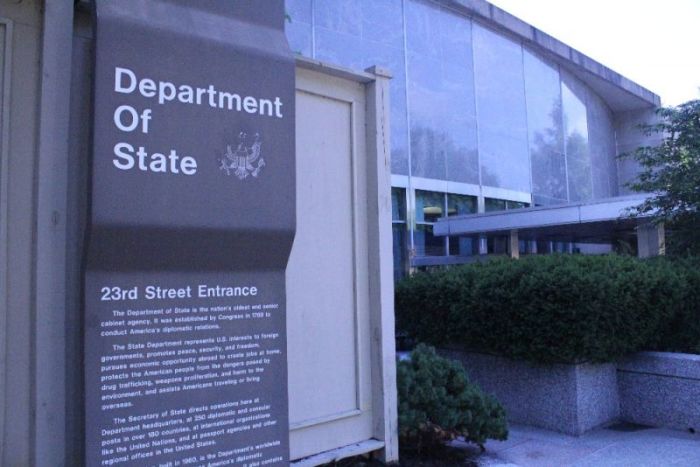State Dept.'s $20K grant to group hosting drag shows in Ecuador raises 'significant questions'

The U.S. State Department is defending its $20,600 grant to an Ecuadorian cultural center that, among other things, will fund a dozen drag shows in Ecuador. A Republican member of Congress has penned a letter demanding answers about the funding.
Rep. Michael McCaul, R-Texas, the lead Republican on the House Foreign Affairs Committee, sent a letter to Secretary of State Antony Blinken on Tuesday asking for more details about the grant to the Centro Ecuatoriano Norteamericano (CEN) for a project that started on Sept. 30 and will run until Aug. 31, 2023.
As the grant's recipient, the cultural center will host three workshops and 12 drag performances. It will also produce a two-minute documentary to promote "diversity and inclusion."
"This award raises significant questions about the department’s grantmaking decisions and the Biden administration’s overall views of U.S. foreign policy objectives in the region," McCaul wrote. "It is difficult to imagine how the department determined that funding 'drag theater performances' would be a worthwhile use of taxpayer dollars or consistent in any way with the program objectives outlined above."
In a statement to The Christian Post, the State Department said that it supports a wide range of strategic programs in Ecuador that "incorporate concepts from diversity, inclusion, and representation to equity and accessibility."
The department also noted that U.S. public diplomacy programs supported 18 educational and entrepreneurship capacity-building grants, almost totaling $900,000 in the fiscal years 2021 and 2022. The programs were intended to reach traditionally marginalized communities in Ecuador, including LGBT people, women and at-risk youth.
The grant awarded to the CEN "uses the arts to raise awareness about diversity and inclusion," the department claims.
The program aims to promote "tolerance" and create opportunities for LGBT people to express themselves "freely and safely."
As part of the program, a local theatre company will collaborate with artists and facilitators in the Ecuadorian city of Cuenca to create customized plays and produce a documentary.
"LGBTQI+ people across the globe deserve to live in societies free from targeted violence and discrimination," the department's statement to CP stresses.
"The program will advance key U.S. values of diversity and the inclusion of LGBTQI+ communities as well as promote the acceptance of communities that are disproportionately affected by violence."
Grace Melton, a senior associate in the Richard and Helen DeVos Center for Life, Religion, and Family at the conservative think tank Heritage Foundation, believes the State Department is engaging in "ideological colonialism."
"This administration has made no secret of its intention to promote radical gender ideology and progressive social values at home and abroad," Melton wrote in a statement to CP.
"But many countries around the world — particularly among those on the receiving end of American foreign assistance — find those values offensive," she stated. "It's hard to see how funding drag performances furthers legitimate American foreign policy priorities or improves the lives of Ecuadorians."
According to Outright International, an organization that advocates for LGBT inclusivity worldwide, Ecuador legalized same-sex marriage in 2019 but continues to forbid same-sex adoption.
Equaldex, a site that tracks laws surrounding LGBT issues worldwide, reports that Ecuador has allowed people to change their name and gender on legal documents since 2016. The country does not legally recognize non-binary identities, people who do not identify as either gender.
In June 2021, Secretary of State Antony Blinken announced the State Department would allow people to identify as the opposite gender on their passports, even if this does not align with their biological sex or gender identity on other official documents.
The Biden administration had previously announced last October that citizens who identify as nonbinary or intersex could use an "X" gender marker instead of "M" for male or "F" for female. The administration announced this past April that airport security would allow passengers to select their gender identity at security checks without supporting medical documentation.
"The gender selected does not need to match the gender on supporting documentation, such as birth certificate, passport, or state-issued ID," the Transportation Security Administration said in a statement.
"Changing a gender association in TSA PreCheck will have no effect on a member's expedited screening when arriving at the TSA checkpoint."
Samantha Kamman is a reporter for The Christian Post. She can be reached at: [email protected].



























